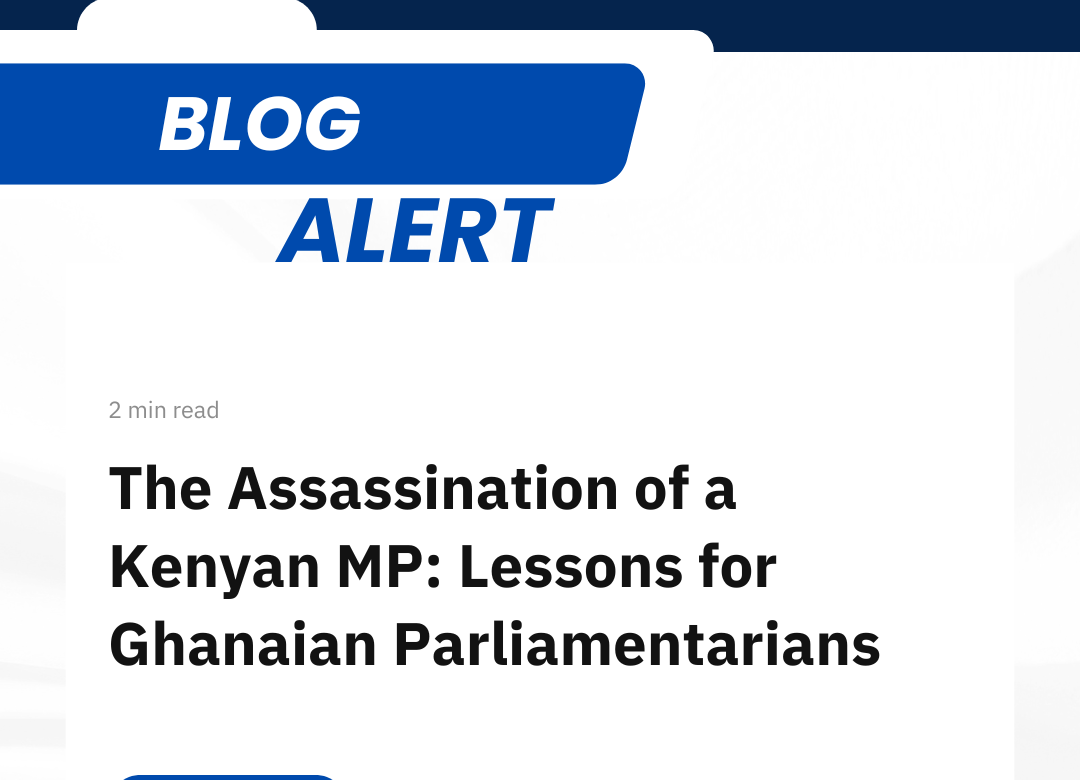In many African nations today, there is growing disenchantment—especially among the youth—regarding the failure of democratic systems to deliver on their promises. Persistent issues such as youth unemployment, widening inequality, urban decay, and rural neglect have fueled widespread dissatisfaction. These grievances have contributed to rising political unrest and violence across the continent.
Parliamentarians, as direct representatives of the people, often bear the brunt of this unrest. They frequently face verbal abuse, harassment, and even physical attacks, particularly during election periods. These dangers discourage many, especially women, from entering or continuing in politics. The rise of political vigilantism and factional rivalries only compounds the threat.
A stark reminder of these dangers came on April 30, 2025, with the assassination of Kenyan Member of Parliament Charles Ong’ondo Were. According to the BBC, Mr. Were was shot in broad daylight on the streets of Nairobi by assailants on a motorcycle in what authorities suspect was a targeted killing. Kenyan police revealed that the attackers had been trailing his vehicle before one gunman approached and shot him at close range. Police spokesperson Mr. Muchiri Nyaga confirmed, “The nature of this crime appears to be both targeted and predetermined.” Reports from the Daily Nation further indicated that Mr. Were had repeatedly voiced concerns about threats to his life—concerns that tragically went unheeded.
The murder sparked widespread condemnation. President William S. Ruto denounced the act and vowed to bring those responsible to justice. The Inter-Parliamentary Union (IPU) also condemned the killing in the strongest terms, expressing solidarity with the Kenyan Parliament and reaffirming its commitment to protecting legislators and upholding democratic values globally.
So, what lessons can Ghanaian MPs draw from this tragic event?
While political assassinations are rare in Ghana—as they are in Kenya—both countries, despite their relatively stable democracies, are not immune to growing undercurrents of violence and unrest. In Ghana, even routine political activities, such as the nomination of District Chief Executives (DCEs), have become flashpoints for intra-party conflict. In constituencies where the MP’s preferred candidate aligns with that of the Executive, DCE approvals tend to proceed smoothly. However, in cases of disagreement, tensions often escalate into open confrontation and sometimes violence.
A particularly concerning development in Ghana’s political landscape is the rise of vigilantism. Both major political parties—the New Patriotic Party (NPP) and the National Democratic Congress (NDC)—have cultivated vigilante groups across the country. These groups, often masquerading as private security or election observers, are in fact instruments of political coercion. As Justice Tankebe noted in his 2019 study, Confronting Political Vigilantism in Ghana, vigilantism is “an instance in which people take the law into their own hands to advance a partisan political agenda.” The risks posed by such lawlessness are obvious and dangerous.
It is, therefore, imperative that Ghanaian MPs—who are frequently at the epicenter of political action—resist any temptation to condone or support acts of violence and intimidation, even implicitly. Parliamentarians must champion peace, democratic integrity, and the rule of law, and disavow the use of violence as a political tool.
The assassination of Charles Ong’ondo Were is not just a Kenyan tragedy—it is a cautionary tale for all of Africa. Ghanaian MPs must take it as a serious warning and work proactively to ensure that Ghana’s political space remains safe, lawful, and truly democratic.

